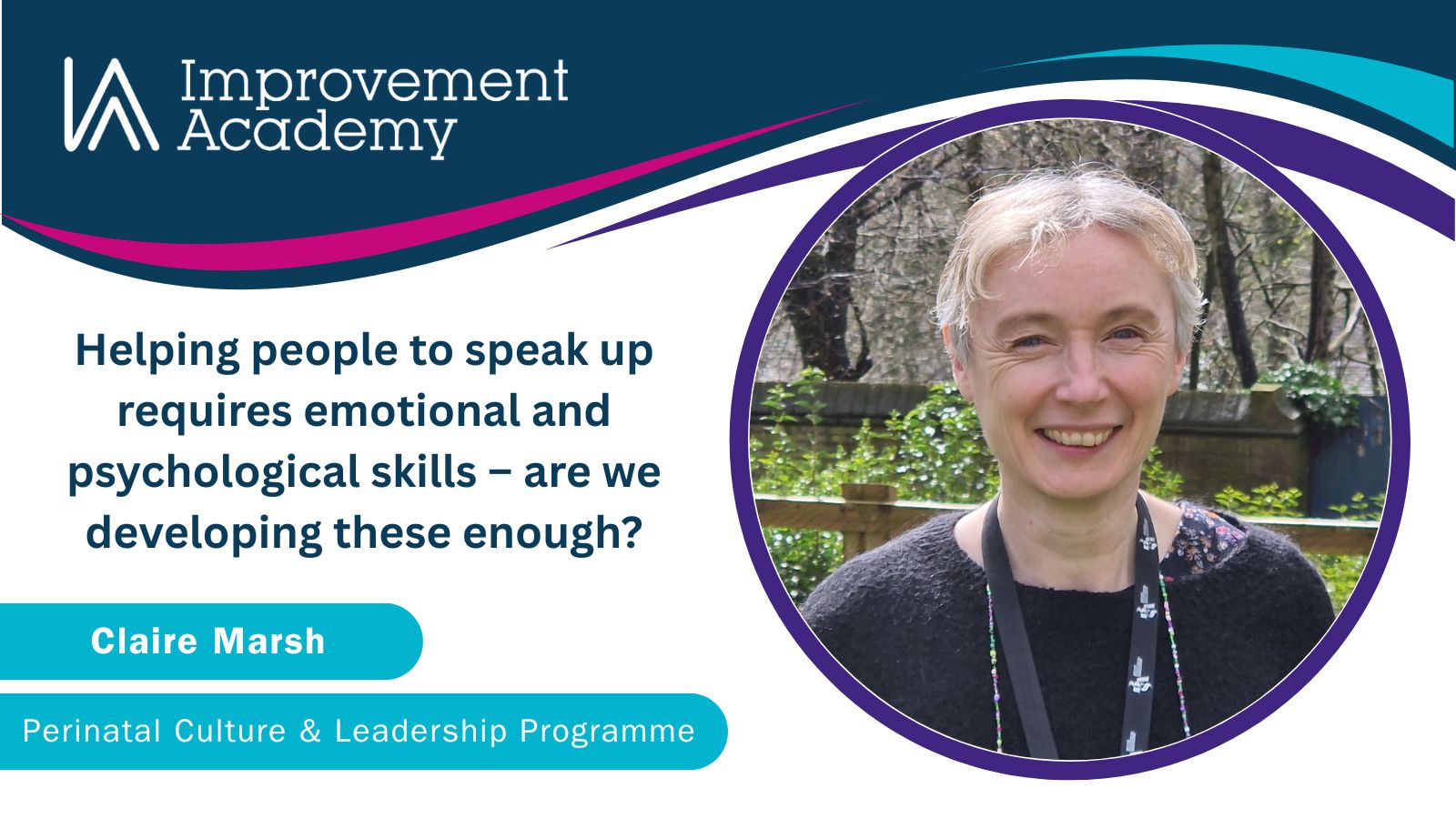Claire Marsh, Perinatal Culture & Leadership Programme, Improvement Academy
‘Groundhog Day Strikes again’ was a term used by the Patient Experience Library[1] as it introduced a recently featured report into the failings of mental health services in Edenfield Centre, Greater Manchester. Starting with the Francis report into Mid Staffordshire in 2013, we have been dealt a succession of reports that document cultures of fear, blame and an inability for concerns to be effectively raised by staff and patients, and then dealt with. Maternity settings are now under scrutiny for the same reasons.
Perhaps it is so hard to keep hearing this because we do collectively know what better would look like. Psychological safety as an aspirational concept – ‘the belief that one will not be punished or humiliated for speaking up with ideas, questions, concerns, or mistakes, and that the team is safe for interpersonal risk taking’ – (Edmundson 1999) has gained international traction in healthcare. And practically, processes such as ‘Freedom to speak up’, and Martha’s Rule now exist to support people with ways to raise concerns.
But will these be enough when we as humans are programmed psychologically not to rock the boat? Research published 20 years ago in the Harvard Business Review reported that ‘nearly 70% of employees hesitate to speak up in meetings, often holding back valuable insights and ideas’, and anyone honestly reflecting on their own experience of the workplace now, knows that this probably still holds. In order to try and shift this, we need more than new processes and policies, but a good understanding of the psychology and the pervasive emotions involved. The term ‘self-silencing’ refers to what we do to save ourselves from rejection, punishment and negative consequences. We do these things, to greater or lesser extent, everyday! From our improvement work with patients and clinical teams over several years, we have published summaries of their experiences of working in or receiving healthcare. We can see that ‘self-silencing’ is prolific, existing, at least to some extent, in most healthcare settings.
- Patients largely accept the narrative that staff are overwhelmed, are grateful for what they can get, and ‘try not to bother busy staff and ask too many questions so can remain in-the-dark’.
- Individual staff take a head’s down approach where ‘some will remain quiet, anything for a quiet life but then they face the consequence when something goes wrong for a patient’.
- Frontline clinical leaders focus on motivating their teams whilst not knowing where to take their concerns: ‘As managers, we put on a real “come on we can do this”’ and we don’t moan publically. I voice my concerns to my matron but I know she can’t do anything about it either. So who can you say this to?’
- Senior leaders do not feel able to push back on commissioners’, regulators’ and inspectors’ decisions even when their staff dispute them, for fear of retributions from appearing problematic or defensive.
In short, there are some major psychological challenges to overcome in order to really see change in our collective ability to speak up and improve patient safety. At the Improvement Academy, our programmes are designed to support those who want to challenge and raise issues, at all levels. Complementing and supporting the over-stretched Organisational Development, Psychology, and staff support teams in NHS Trusts and in social care, we provide safe spaces for honest discussion. These allow the sharing of experiences, tools and techniques, and coaching style support, for those who wish to improve and measure, not only patient safety, but the cultural conditions necessary to achieve this, within their own teams and organisations.
Get in touch to find out more about our relevant programmes: academy@yhia.nhs.uk
[1] The Patient Experience Library is a user-friendly digital database of patient experience and involvement news, reports and survey data, provided via free search facility and unlimited downloads. Its featured reports have helped shaped this blog.
